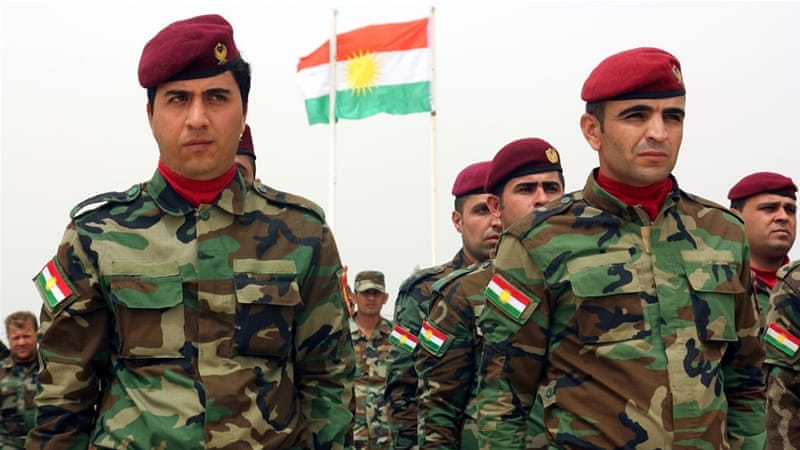IN THE MEDIA
The Road to Kurdistan
October 6, 2017 | Colin Rubenstein

Colin Rubenstein
An edited version of this article appeared in the Daily Telegraph – October 6, 2017
Amidst the chaos and turmoil of the Middle East, a long-suffering people has been denied self-determination continuously for almost a century.
Stateless and persecuted, Kurds have been the target of oppression, intimidation and violence. Tens of thousands have been killed. Yet despite all they have been through, they continue to cling to the hope of a brighter future in a state of their own.
The Kurds were first promised a state by the international community in the 1920 Treaty of Sevres – but their aspirations for self-determination have been thwarted ever since. They have had limited autonomy in Northern Iraq unofficially since the 1990s and officially since 2005 – after they suffered repeated massacres under Saddam Hussein.
There they have demonstrated that they are more than capable of running a stable, comparatively democratic and pro-Western political entity. Kurdish forces have also made a major contribution to fighting Islamic State and the region has taken in a large number of refugees. Iraqi Kurdistan has its own democratically elected regional parliament and president, with its territory considered a component of a federal Iraq. The area is a pocket of stability in a volatile region.
On September 25, Iraqi Kurds overwhelmingly voted “yes” in a referendum to become fully independent from Iraq.
Iraqi Kurdistan has every hallmark of an independent state, and a moderate, stable one at that, but the road to full independence is still fraught with complications. Despite Kurdish voters overwhelmingly choosing to secede, Baghdad will be reticent to enter into negotiations.
Kurdish independence also has little support both within the region and beyond. Within the Arab world, Turkey and Iran, the Kurds stand accused of trying to create up to “four new Israels” in the region. An adviser to Iran’s supreme leader Ali Khamenei stated in 2016, “the objective behind the establishment of a Kurdish state is the creation of a second and third Israel in the region in order to divide it, which is the goal of imperialism and the Zionists”.
Sadly, the 100-year struggle for independence by 35 million souls with a clearly distinct culture and history has been reduced to a mere Zionist conspiracy.
This is being done, no less, by the very same regimes that continue to champion the Palestinian cause. This clear double standard is exposed as all the more fraudulent by the fact that Iraqi Kurdistan possesses all four prerequisites for statehood under international law – a government, a permanent population, a defined territory, and the capacity to enter into relations with other states – while the Palestinians do not.
It is perhaps unsurprising, then, that there is one nation that is loudly championing the Kurds’ right to their own independent state – Israel. Prime Minister Binyamin Netanyahu declared his support for Kurdish independence on September 13 after describing the Kurdish people a month earlier as “brave, pro-western people who share our values”. Other prominent Israeli voices have also spoken in favour of Kurdish independence.
There is also a strategic aspect to Israel’s support of Kurdish independence. Israel’s first Prime Minister David Ben Gurion understood the importance of the Kurds even in the early days of the Jewish state, with his “periphery strategy” of seeking closer ties with non-Arab groups in the Middle East.
Indeed, the objections to establishing Kurdistan reflect the same ugly intolerance and disdain for minority rights that has often wracked the Middle East over the last century – which is also a key to understanding the ongoing and vehement hostility to Israel’s existence. As long as the Middle East was represented as exclusively the property of Arabs and Sunni Muslims, other groups indigenous to the area – Kurds, Jews, Copts, Assyrians, Alawites, Druze, Berbers, Yazidis, Shi’ites and many others – were marginalised at best, and often subject to discrimination and even ethnic cleansing.
The Kurdish referendum won’t see a Kurdish state established tomorrow. The regional backlash and serious threats underline it will take time ,effort and will power and nothing is guaranteed. Unfortunately, despite the justness of the Kurds’ cause, the Middle East is overwhelmingly an unjust region.
Yet the Middle East currently contains 22 Arab states, one Turkish state, one majority Persian state, and one majority Jewish state. Surely justice demands there also should be room for one more – a state that provides self-determination for the Kurds.
Dr Colin Rubenstein is executive director of the Australia/Israel & Jewish Affairs Council and taught Middle East politics at Monash University.
Tags: Iran





